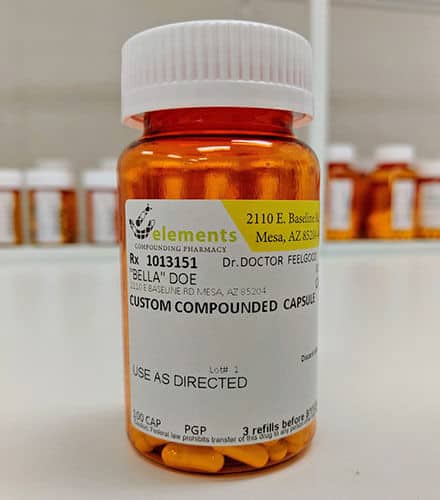Discovering the Mechanisms Behind Fenbendazole and Its Effect On Animal Health And Wellness
Fenbendazole is a commonly made use of anthelmintic understood for its performance against various bloodsuckers. Its main system involves the restraint of microtubule formation, which interrupts important procedures in these virus. Past its antiparasitic homes, fenbendazole likewise shows up to improve immune reactions and has anti-inflammatory advantages. Understanding these diverse results could expose brand-new applications for pet health and wellness. Inquiries continue to be regarding its complete capacity and safety account.
The Pharmacokinetics of Fenbendazole
The pharmacokinetics of fenbendazole, an extensively utilized anthelmintic in veterinary medication, entails the research study of its absorption, circulation, metabolic process, and discharging within animal systems. After administration, fenbendazole is rapidly absorbed from the intestinal tract, with peak plasma focus taking place within hours. Its distribution is influenced by factors such as tissue binding and lipid solubility, allowing it to pass through different cells efficiently. The medicine undergoes comprehensive metabolic rate primarily in the liver, where it is transformed right into energetic and non-active metabolites. These metabolites play a role in the medicine's overall efficiency and security profile. Discharging takes place mostly via feces, with a smaller percentage eliminated via urine. The half-life of fenbendazole varies among varieties, which impacts dosing routines. Recognizing these pharmacokinetic homes is important for maximizing its healing usage and making certain effective parasite control in veterinary methods.
Devices of Action Against Parasites
Fenbendazole exerts its antiparasitic results mostly with the inhibition of microtubule development in parasites. This interruption impacts their architectural honesty and cellular functions, causing impaired energy metabolic rate. Because of this, the medicine effectively jeopardizes the survival and recreation of numerous parasitic organisms.
Inhibition of Microtubule Development
Restraint of microtubule development stands for an important system where certain anthelmintic representatives, consisting of fenbendazole, apply their impacts on parasites. Fenbendazole binds to tubulin, a protein that creates microtubules, interrupting the polymerization procedure needed for microtubule assembly. This disturbance impairs important mobile functions, consisting of mitosis, intracellular transport, and structural stability. As microtubules play a vital duty in keeping the form and feature of parasitical cells, their inhibition leads to cell cycle arrest and eventual death of the parasite. This mechanism is especially efficient against nematodes, as their dependence on microtubules for movement and nutrient absorption makes them vulnerable to fenbendazole. As a result, the inhibition of microtubule development is a vital facet of fenbendazole's healing effectiveness in vet medication.
Interruption of Energy Metabolism
Interfering with basal metabolism is one more essential mechanism through which fenbendazole targets parasitical microorganisms. This anthelmintic changes the power production paths within parasites, mostly impacting their capability to generate adenosine triphosphate (ATP) By preventing glucose uptake and disrupting mitochondrial function, fenbendazole restrictions the energy resources important for the survival and reproduction of these organisms. Therefore, bloodsuckers end up being increasingly at risk to environmental stress and anxieties and immune actions. The disturbance in energy metabolic rate not only affects the parasites straight but additionally reduces their capability to absorb nutrients, additionally hindering their development - fenbendazole. On the whole, the disruption of energy metabolism represents an essential facet of fenbendazole's effectiveness versus numerous parasitical infections, adding significantly to boosted pet health results
Possible Side Results and Security Profile
The prospective side impacts and safety profile of fenbendazole warrant mindful consideration, particularly in vet applications. While typically regarded as risk-free, some animals may experience damaging responses, consisting of stomach disruptions such as throwing up and diarrhea. Additionally, neurological symptoms, although uncommon, have actually been reported in sensitive individuals, highlighting the need for tracking during treatment.

Fenbendazole's safety and security in numerous types, consisting of pets and felines, has been recorded, but dose and duration of treatment must be carefully managed to reduce dangers. Expecting or breast feeding pets might also call for special attention, as the impacts on establishing fetuses or nursing offspring are not totally understood.
Normal vet assessments can help mitigate prospective adverse effects and guarantee the medicine is provided appropriately. While fenbendazole is an effective anthelmintic representative, caution regarding its side results is important for maintaining pet health.
Fenbendazole's Impact on Immune Function
Fenbendazole has actually been kept in mind for its possible to modulate immune system feedbacks in animals. Its anti-inflammatory residential properties may contribute to enhanced immune feature, supplying a dual advantage in managing health and wellness (fenbendazole capsules). Comprehending these effects is crucial for evaluating fenbendazole's function in veterinary medication
Body Immune System Inflection

Anti-inflammatory Characteristics
Anti-inflammatory effects stand for a significant facet of fenbendazole's influence on immune feature. Research study suggests that fenbendazole might minimize the manufacturing of pro-inflammatory cytokines, which are crucial in moderating inflammatory actions. By regulating these cytokines, fenbendazole can potentially relieve inflammation-related conditions in pets. This anti-inflammatory action not only help in taking care of symptoms connected with different illness yet also boosts overall body immune system efficacy. In addition, its capability to promote a well balanced immune feedback aids stop extreme inflammatory damage, which can cause persistent health problems. Fenbendazole's duty in inflammation monitoring emphasizes its value in veterinary medication, offering a twin advantage of antiparasitic action and immune system assistance for animal wellness.
Applications Past Typical Parasitical Infections
While mostly recognized for its effectiveness against various parasitical infections, fenbendazole has actually amassed focus for prospective applications past this these details typical extent. Current research studies recommend that fenbendazole might have helpful impacts on cellular health and wellness and immune feedback, making it an intriguing prospect for taking care index of various other wellness conditions in pets. For example, its reported anti-inflammatory residential properties might provide alleviation for animals dealing with persistent inflammatory diseases. In addition, some research study shows that fenbendazole might play a duty in supporting the general wellness of pets by boosting nutrition absorption and stomach wellness. Moreover, its prospective as an accessory treatment in cancer treatment has stimulated rate of interest, as preliminary findings suggest it might prevent growth cell growth in certain contexts. These varied applications highlight fenbendazole's versatility, motivating more exploration right into its complex benefits for pet health and wellness past its traditional usage as a deworming agent.
Future Research Instructions and Effects for Pet Wellness
The expedition of fenbendazole's potential applications has actually opened brand-new methods for research study targeted at improving pet wellness. Future studies can focus on its efficiency versus a more comprehensive variety of microorganisms, consisting of bacteria and infections, consequently increasing its duty in veterinary medication. The ramifications of fenbendazole's devices, such as its influence on immune modulation, warrant even more investigation to understand exactly how it can strengthen general health in numerous species.
Additionally, research may explore excellent dosages and formulas to take full advantage of effectiveness while decreasing prospective negative effects. Investigating fenbendazole's collaborating results with various other medications might lead to a lot more reliable treatment protocols. Longitudinal studies evaluating lasting outcomes in pets treated with fenbendazole might give important insights into its safety and security and performance. On the whole, the ongoing expedition of fenbendazole uses promising possibility to improve investigate this site pet wellness, demanding a collaborative method among scientists, veterinarians, and pharmaceutical designers to help with advancements in this field.
Often Asked Concerns
Can Fenbendazole Be Used in Livestock for Bloodsucker Avoidance?
The question of whether fenbendazole can be made use of in livestock for bloodsucker avoidance is relevant, as manufacturers look for reliable therapies (fenbendazole 444). Research study suggests it may offer advantages, however correct standards and veterinary guidance are important for risk-free use
What Is the Suggested Dose of Fenbendazole for Various Animals?

Are There Any Type Of Understood Drug Interactions With Fenbendazole?
Existing understanding suggests that fenbendazole may communicate with particular medications, potentially impacting their effectiveness or metabolic rate. Veterinary specialists advise talking to a vet to examine specific pet situations and determine any kind of feasible communications prior to management.
How Does Fenbendazole Compare to Various Other Antiparasitic Medicines?
Fenbendazole is typically contrasted to other antiparasitic medicines based upon efficiency, spectrum of task, and safety and security profiles. It is favored for its performance against a wide variety of parasites while generally displaying minimal negative effects in pets.
Is Fenbendazole Effective Against Viral or Microbial Infections in Pets?
The efficiency of fenbendazole versus viral or bacterial infections in pets remains unproven. Research mainly concentrates on its antiparasitic residential or commercial properties, with limited evidence supporting any duty in dealing with non-parasitic infections in veterinary medication.